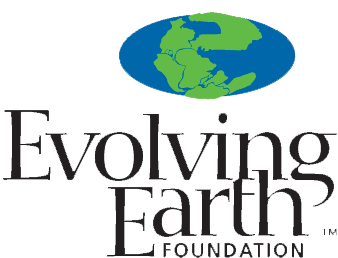Details
Important Notes
Please note that the final signature block on the Grant Application Form is to be signed by an authorized approver for your institution. Most universities have a grant or sponsored research office that is required to review and approve external grant requests. To avoid delays in the processing of any potential grant award, please check the policies at your institution to ensure that your application receives the proper internal approvals before it is submitted to the Evolving Earth Foundation.
Many universities do not allow students to be listed as the Principal Investigator on grant applications. In those cases, the faculty advisor may be listed as the Principal Investigator with the student as co-investigator. The student researcher is expected to write the grant proposal and to perform the work as outlined in the grant application under the supervision of the faculty advisor.
The Evolving Earth Foundation will only provide grants to accredited non-profit institutions. If requested, you may need to provide proof of your institution’s current IRS Tax-Exempt Status. Grant award checks are written to the institution, not to an individual.
Proposal Description
The proposal description should be clear and concise, and must contain the following sections:
- Proposal Narrative (four pages max, including figures)
- Bibliography (one page)
- Student Researcher Education and Experience (one page)
The proposal narrative should discuss the goals and scientific significance of your research, research methodology, timeline for the project, and expected deliverables (publication, public outreach, etc.)
The education and experience section should list academic degrees that have been earned or are in progress, date awarded, institution, and expected graduation date as applicable. Any publications from the last five years should also be listed. This section must also provide name and contact information for the faculty advisor.
Budget
Provide an itemized budget for your project. Requested items should clearly be required for the proposed research. In addition to itemized costs, the budget description should include the following information where applicable:
- Total budget for the project – including the amount requested from the Evolving Earth Foundation and any additional funding sources. Funding that you have received from internal or external sources will add credibility to your application.
- Equipment and supplies – provide a list of any consumable equipment or supplies needed to support your research. Non-consumable equipment (i.e. digital cameras, computers/accessories, analytical equipment, etc.) are not normally funded by our grants. If such items are required for your research and not available from other sources, they may be requested in your budget but must be clearly justified.
- Travel – provide expected costs for travel directly needed to conduct the research.
- Publishing costs – estimated page costs for publication of research results.
Applicants should note that the following items are not funded by Evolving Earth Foundation grants: institutional overhead and indirect costs, salaries, stipends or fringe benefits, and travel to scientific meetings (except as needed for presentation of grant funded research).
Letter of Recommendation
A letter of recommendation from your advisor is required. The letter should be sent separately via email in PDF format only to: [email protected]
Your letter of recommendation must be received by March 1, 2022.
Evaluation Process
Grant applications are reviewed by foundation personnel and are evaluated based on the following criteria:
- Scientific merit
- Applicability to foundation mission and priorities
- Quality of proposal
- Project viability
- Budget efficiency
- Strength of letter of recommendation
Grant applications that support our mission in any way will be considered, although preference will be given to grant requests that directly relate to the foundation focus areas:
- Understanding of paleoenvironments and paleoclimates during different intervals in earth’s history.
- Understanding of taphonomic processes in terrestrial, marine, and freshwater environments.
- Evolution, systematics or taxonomy of fossil plant or animal groups.
- Paleontological, paleobotanical, or paleoecological studies of specific fossil localities. A multidisciplinary approach is strongly encouraged.
- Relationships of organisms in paleocommunities with each other or with their physical environment.
- Evolution of landforms and geologic features. This can be on a global, regional, or local scale.
Applicants will be notified of funding decisions by April 30th, 2022. All decisions are final.
Note: Due to the ongoing pandemic, notifications may be sent by email in 2022. Otherwise, notification letters are sent via U.S. Postal Service to the Student Investigator mailing address on your grant application form. If you have not received a notification by the listed date, please contact us at [email protected]
Grant Awards and Reporting Requirements
If your application is successful, we will contact the grant administrator listed on your application to coordinate the grant award. Award checks are written to the institution, not to the applicant.
All grants are subject to our grant award conditions.
We require annual updates for your grant funded project, due May 1st of each year until your project is complete or grant funds are expended. Annual reports are informal; mainly we’d like you to check in via email and let us know how things are going. Within sixty days of the completion of your project or the expenditure of all grant funds, we request a formal final report that discusses the results of your project and accounts for the use of grant funding. You may also be invited to share your results in our News section.
